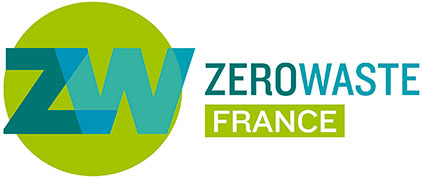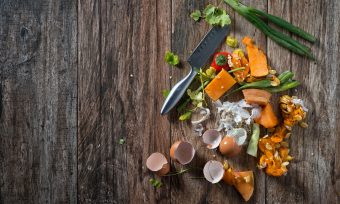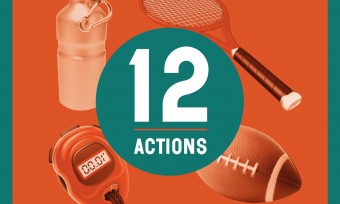Composting and sorting bio-waste
Bio-waste is organic waste: food waste, kitchen waste, green garden waste, paper, cardboard... They make up one third of our waste bins and therefore constitute a major lever to reduce our waste and waste of resources.
Why take bio-waste out of our garbage cans?

Food waste, leftovers from meals, garden waste: organic waste constitutes a third of the household waste that we throw in the garbage. When mixed with other waste, they end up in landfills or incinerators.
As with other types of waste, priority number one of course remains the fight against food waste, to ensure that only « unavoidable » bio-waste ends up in the bin.
For the latter, it is then necessary to ensure that they are sorted separately, so that they can be composted or fermented/methanized. The result: a significant reduction in the weight of our waste, but also other environmental benefits (improved soil health, carbon capture, energy production, etc.).
A platform of information dedicated to bio-waste
The Biodechets.org websiteTo encourage the development of bio-waste sorting, Zero Waste France has gathered information, resources, regulatory references and inspiring initiatives on the Biodechets.org website.
How to create a neighbourhood compost? How to take care of a vermicomposter? What pedagogical actions should be implemented in a school? The site is designed as a portal to answer all these questions and facilitate action by all: citizens, policy makers, entrepreneurs and businesses.
A citizen observatory
Today, about 4 million people in France have a specific waste bin for organic waste in their homes. Their local authority organises the sorting and recycling of this waste, just as it does for glass or cardboard. In the coming years, more and more local authorities are expected to offer this service!
Upstream sorting of bio-waste, everyone’s business!
The Energy Transition Act (17 August 2015) set a target which aims at generalising the sorting of bio-waste at source by 2025. Each citizen should have at his disposal a solution allowing him not to throw his bio-waste in the residual household waste. The European Union confirmed this new obligation in 2018 with the adoption of the Circular Economy Package, with a shorter deadline of 31 December 2023.
The Biodechets.org website offers citizens the opportunity to testify about the organic waste sorting solutions available to them. The results of this survey will be used to measure the achievement of the objectives of the Energy Transition and Green Growth Act (LTECV).


